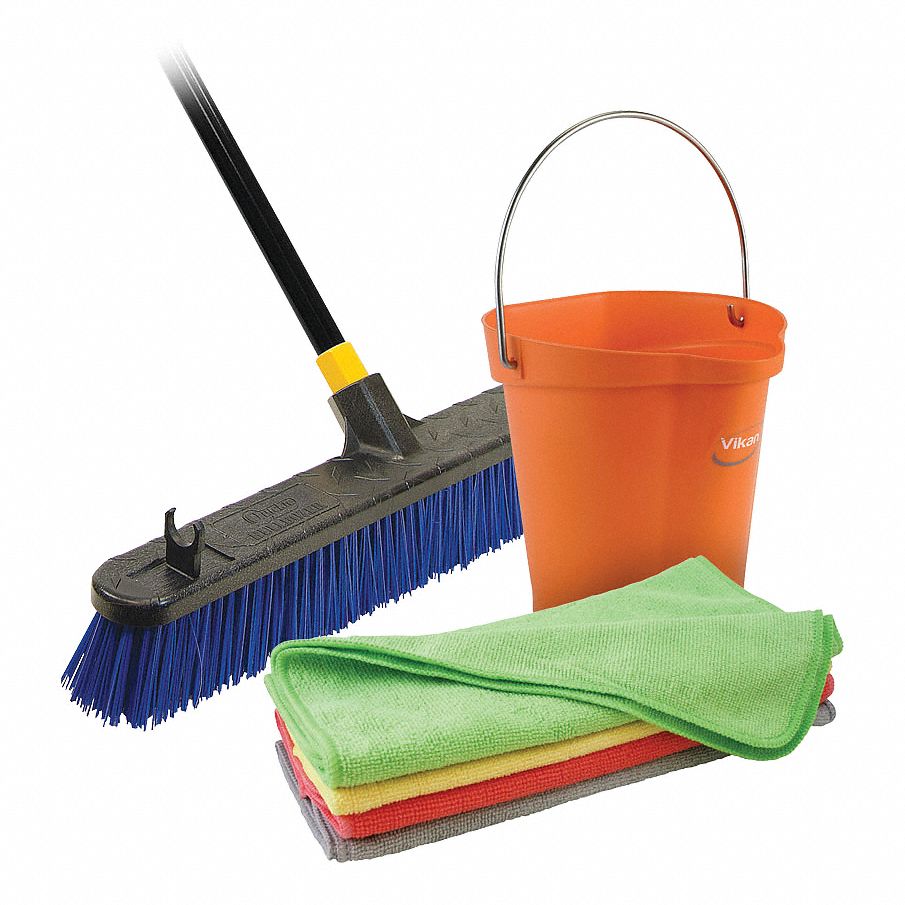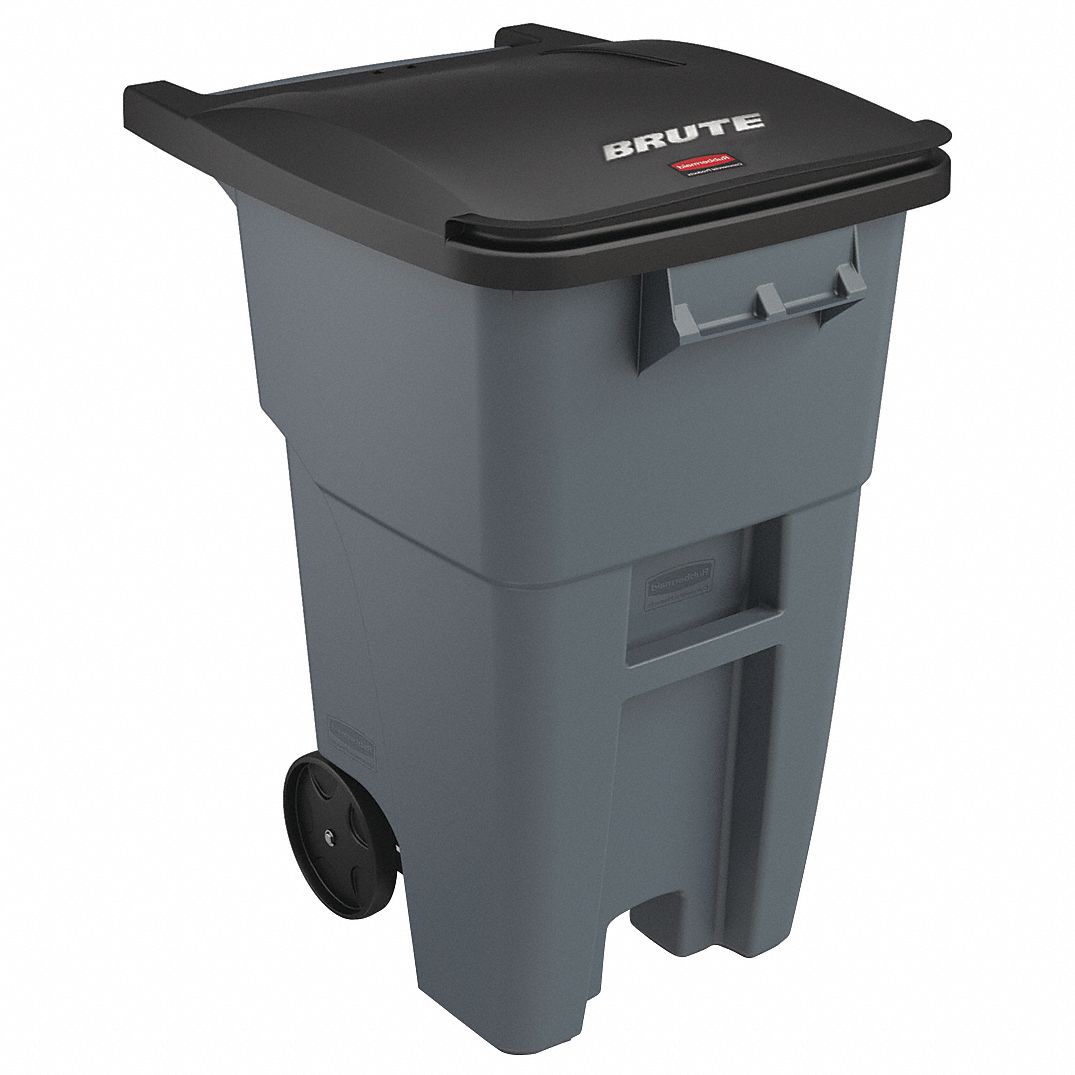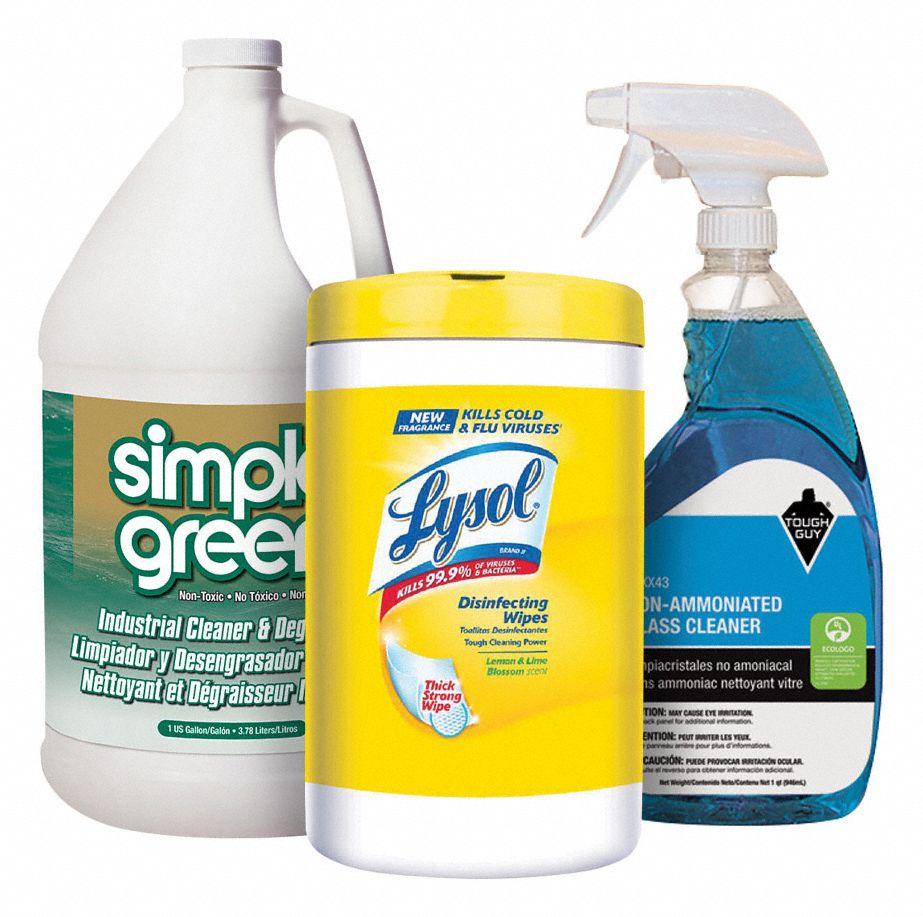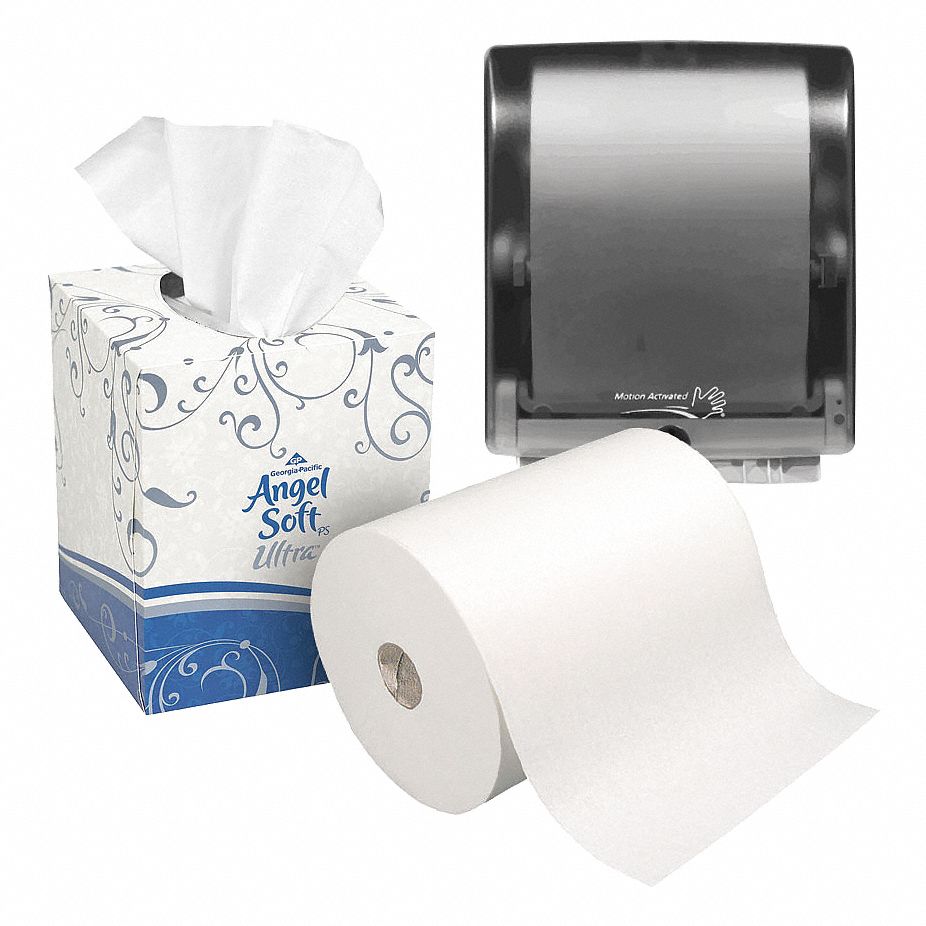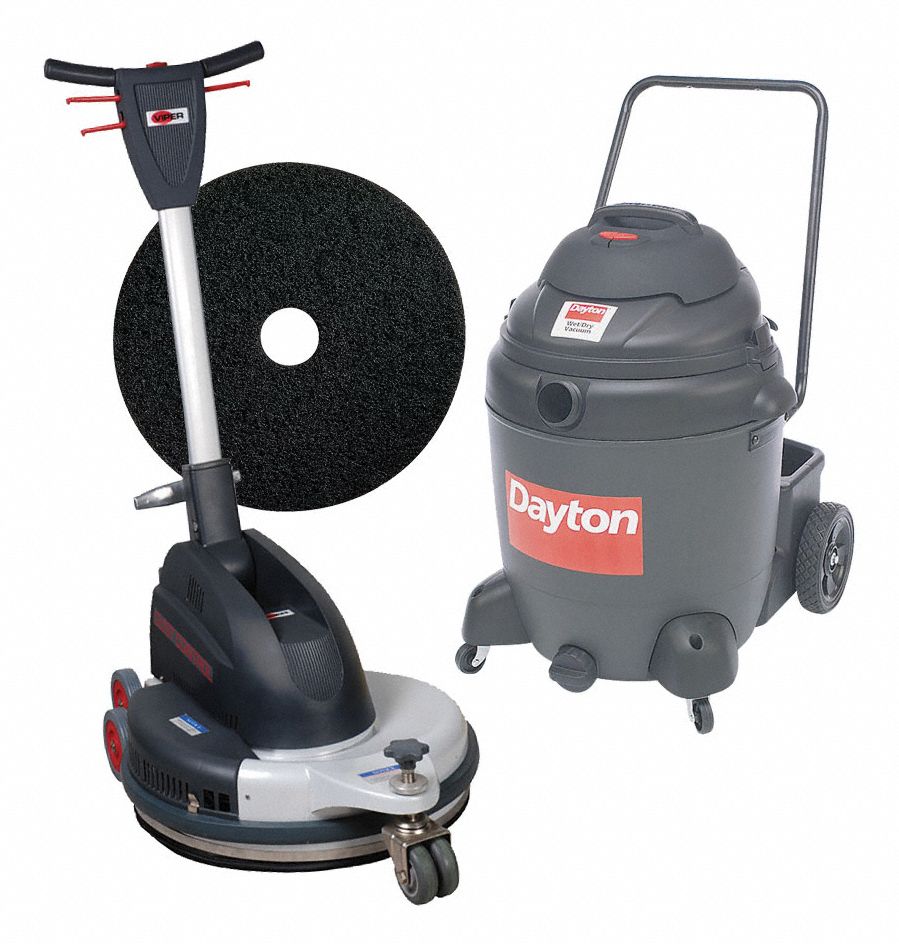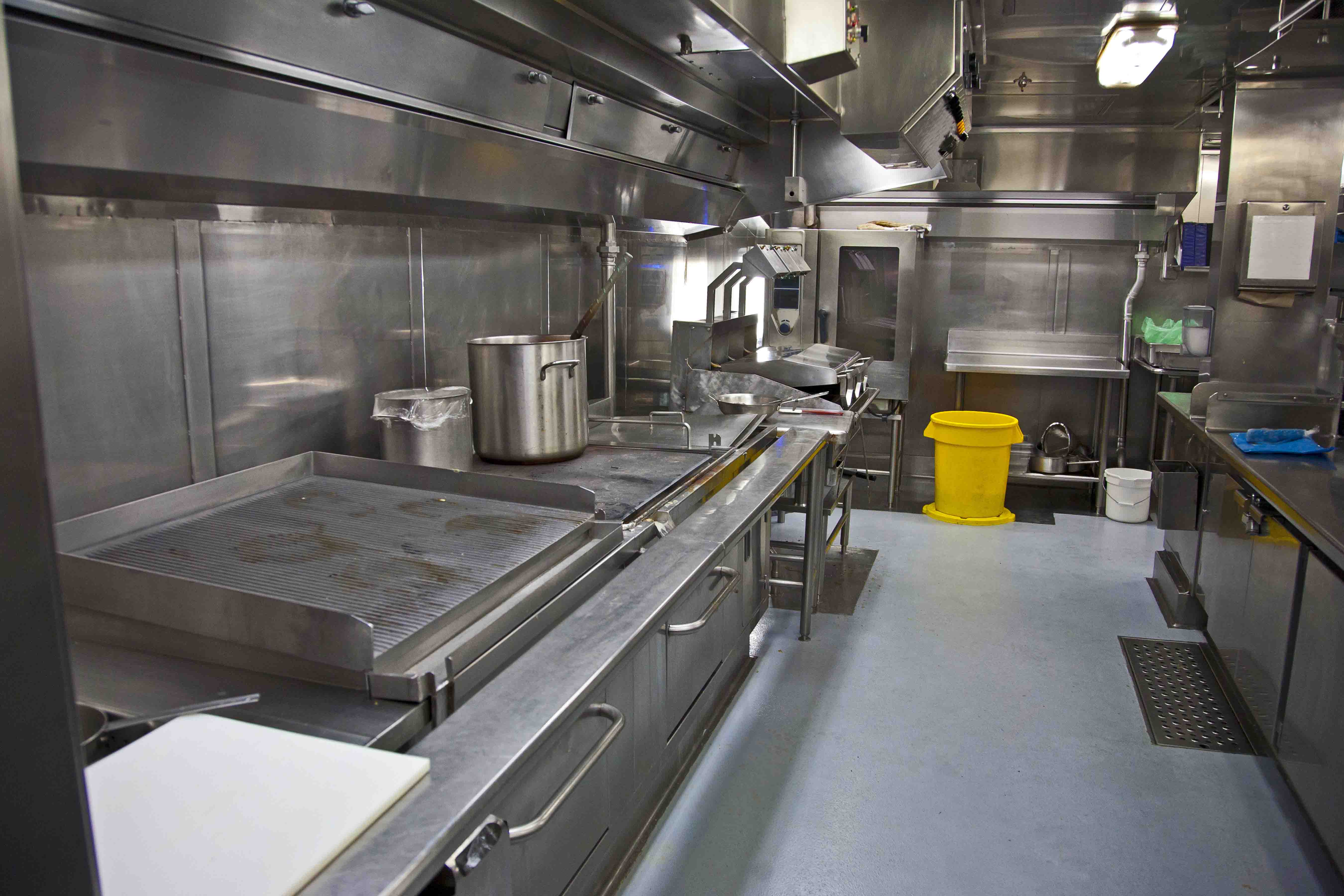

Commercial Kitchen Cleaning Checklist
By Grainger Editorial Staff 9/1/17


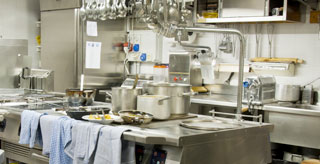
1. Assess Appliances
Your appliances are used every day, so they should be assessed every day. Commercial kitchen equipment like stoves, stove tops, ovens, microwaves and fryers experience consistent and continuous use. Make sure to sanitize and degrease your appliances after each use with the right cleaning products. This helps eliminate bacteria and contamination. Food particles that settle and build up over time can cause serious issues down the road, like kitchen fires. Give your dishes a prewash before putting them into commercial dishwashers. By getting rid of food particles, it puts less of a strain on the appliance’s overall system and pipes. With the cleaning routine, you can help extend the life of your food service and food processing appliances, which can reduce unnecessary costs down the road.
2. Survey Surfaces
With so many tasks going on throughout the day, food and dirt can accumulate on your surfaces. Without the proper attention, layers of pathogens can cover your countertop. Thorough and regular cleaning of all your surfaces is a must. This includes more than just table tops, be sure to clean walls and even ceilings. Food and dirt splatters and sits in all directions. Wipe down all surfaces with an all-purpose cleaner and a fresh cloth.
3. Frequent Floors
There’s an old idiom about cleanliness that your floors should be so clean you can eat off them. While you shouldn’t take this advice literally, sweeping and mopping your commercial kitchen floors is not only essential for cleanliness but safety reasons, as well. Immediately taking care of spills can help prevent accidents and falls. Make sure to look underneath tables and equipment to ensure messes don’t go unnoticed for weeks or even months. If your floors are especially large or particularly dirty, a heavy-duty machine may help.
4. Transform Trash
The way you treat kitchen garbage can affect your business and the environment as a whole. By throwing out old food, your outdoor dumpster can attract pests and vermin like rats, mice and flies. Keeping your trash and recycling areas neat and tidy is essential. Make sure that every container has a lid that closes. To limit your waste, it may be beneficial to invest in a composting initiative, which can break down food and organic scraps. Making the shift can reduce costs and environmental impact— at the same time.
5. Review Refrigeration
Efficient and clean refrigerators and freezers are critical to the success of a commercial kitchen. They also can get messy. Be sure to clean out your refrigerators on a weekly basis. Check for expired foods or any spillage of containers. If anything in your refrigerator or freezer has a bad odor, be sure to investigate immediately. Foul smells can affect the taste, even if the food isn’t spoiled itself. Also, be sure to survey and clean other elements to your appliance, like the fridge coils. If they’re not working properly, your refrigerator won’t operate at peak performance which could increase energy costs. Taking care of your refrigerator can go hand-in-hand with waste reduction initiatives.
Obtaining and maintaining a clean commercial kitchen requires the proper team member training. This includes a comprehensive presentation on how and when to clean and why sanitation is crucial for a commercial kitchen.
Sources:
www.restaurant.org/Manage-My-Restaurant/Food-Nutrition/Food-Safety/Maintain-a-clean-and-sanitary-restaurant-kitchen
learn.compactappliance.com/cleaning-commercial-kitchens/
www.colorado.gov/pacific/sites/default/files/AP_Guide-to-Environmental-Regulations-for-Restaurants-and-Food-Service-Businesses.pdf
www.championcarpetcolorado.com/Commercial-Kitchen-Here-are-Some-Tips-on-Keeping-It-Clean/
Pub. 9/2017
![]()
Keeping your place of business clean is essential in ensuring the health of anyone who walks through the door. For workplaces dealing with food service, regular cleaning and maintenance of a commercial kitchen is a necessity to the success and safety of your business as a whole. Working with food and drink on a daily basis is an enormous responsibility. Although vary from state to state, it’s important to understand and implement general rules of sanitation for your commercial kitchen to reduce the spread of bacterial and viruses. Maintain a healthy environment with our commercial kitchen cleaning checklist.
The information contained in this article is intended for general information purposes only and is based on information available as of the initial date of publication. No representation is made that the information or references are complete or remain current. This article is not a substitute for review of current applicable government regulations, industry standards, or other standards specific to your business and/or activities and should not be construed as legal advice or opinion. Readers with specific questions should refer to the applicable standards or consult with an attorney.

